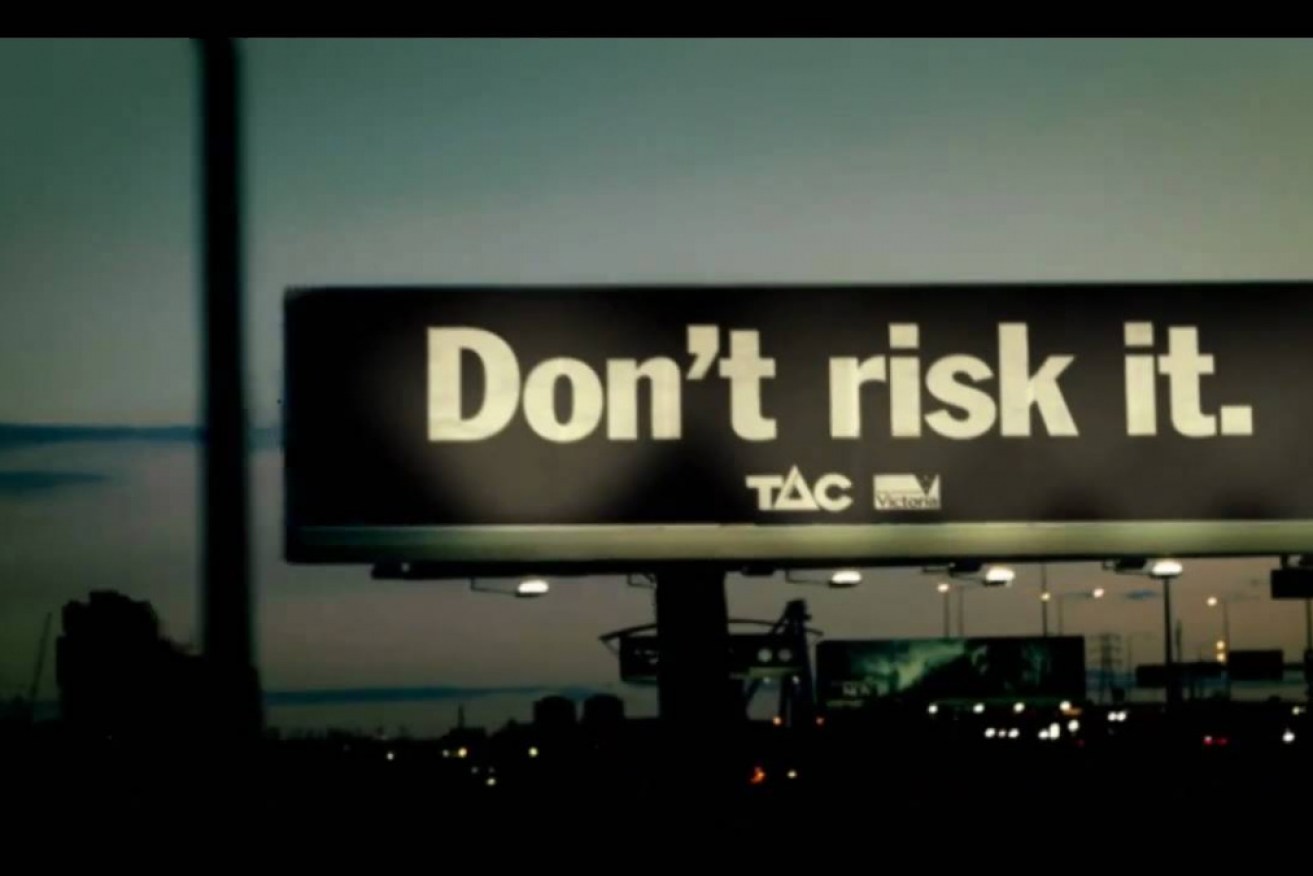Road safety to sunscreen: How Australia’s past health campaigns compare to vaccine push


Road safety is one of Australia's longest-running campaigns. Photo: TAC
The Morrison government has come under fire for failing to upgrade its coronavirus vaccine ad campaign, while other countries roll out star-studded commercials urging citizens to get the jab.
So far, the Health Department has produced one animated and information-packed vaccine ad.
Health experts warn it’s not enough, pointing to powerful campaigns overseas in countries like Britain and New Zealand.
It’s not like Australia doesn’t know how to deliver a strong public health message.
Previous governments have created world-leading campaigns with tangible results.
Here, The New Daily takes a look at some of our most successful health and safety promotion campaigns.
Slip! Slop! Slap!
Aimed at reducing our alarming rates of skin cancer, the Slip! Slop! Slap! campaign of the 1970s and ’80s was our first step toward promoting sunscreen and highlighting the dangers of UV rays.
Forty years ago in 1981, the campaign’s first TV ad went to air, featuring a cheerful seagull in boardies, a T-shirt and a hat singing the catchy Slip! Slop! Slap! jingle.
Over time, this evolved into the SunSmart campaign, which was followed by a major Australian government campaign from 2006 to 2010.
Coupled with social media ads and support from schools, workplaces, surf life saving clubs and the fashion, TV and film industries, the health campaign became one of our most successful ones.
Clear reductions in melanoma incidence rates have been recorded for the under-40 age group who grew up in the Slip! Slop! Slap! era, and rates are levelling in the 40 to 60 age group.
Quit Smoking
Australia is known around the world for our confronting and long-running advertising campaigns aimed at reducing smoking – the world’s No.1 preventable killer.
And it works.
Five years after its launch in 1997, adult smoking rates had dropped by 3.7 per cent.
Since then, smoking rates in Australia have fallen significantly over the past 20 years.
There’s no wonder why.
It’s nearly impossible to forget the Quit Smoking advertisements featuring scorched lungs and cancer patients languishing in hospital beds.
Adding to that is relentless advocacy by the public health sector, plus the introduction in 2012 of the world’s tightest regulatory packaging and retail controls of tobacco products.
Road safety
If there’s one sentence every Australian knows how to finish, it’s this: “If you drink and drive, you’re a ____ ___.”
It all started in 1992, when then prime minister Paul Keating created a national road safety strategy with state and territory governments.
Targeting everything from seatbelt usage and speeding, to drink and drug driving, the strategy has evolved over the past 30 years and achieved major reductions in road trauma.
Before the strategy’s launch in 1989, Victoria’s Transport Accident Commission had already begun its road safety campaign.
Greg Harper, the brains behind the revolutionary “If you drink, then drive, you’re a bloody idiot” campaign, was tasked with writing a commercial that would “upset, outrage and appal” drink drivers.
It had a lasting impact. In the following 12 months, the road toll dropped 37 per cent.
Today there is still more work to do, with more than 1000 Australians dying from road trauma every year.
There is also an ongoing debate about whether targets, including death toll targets, should be ‘realistic’ or ‘aspirational’.
The current approach is for moving ‘Towards Zero’.








